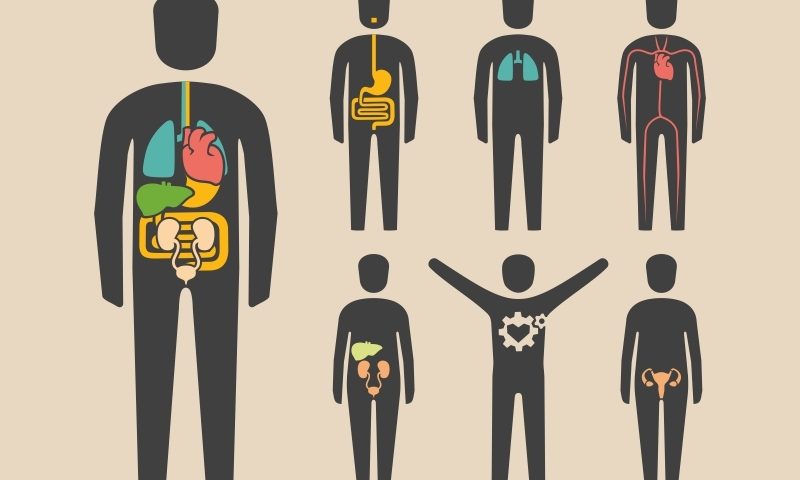Some organs, like the breasts or the colon, may be more vulnerable to cancer than others because of evolutionary forces, researchers at the Center for Ecological and Evolutionary Research on Cancer (CREEC), in France, argue in an opinion piece published in Trends in Cancer. They suggest that because tumors in large or paired organs are more easily tolerated than those in small or critical organs, these organs have developed fewer defenses against cancer cells.
The article is called, “Evolutionary Ecology of Organs: A Missing Link in Cancer Development?”
“The organs that are the most important to keeping you alive and capable of reproduction, such as the heart, brain, or uterus, may enjoy a better protection against cancer, all other things being equal,” Frédéric Thomas, an evolutionary biologist at the center and a co-author, said in a press release. “We are not saying that this is the main factor to explain the different susceptibility of organs to cancer, but it is a factor that contributes with others.”
For example, they noted that “[m]alignant tumors are common in the colon and breast but rare in the heart and small bowel,” and “[t]he uterus frequently develops benign fibroid tumors but uterine cancers are relatively rare.”
A number of studies have dwelled on the differences among organs in their susceptibility to cancer, but focus on internal risk factors such as how often stem cells divide in an organ — a factor that has been proposed to explain two-thirds of the variation in cancer risks — or on external factors like a person’s UV light exposure, smoking habits, alcohol consumption, or disease history.
In the opinion piece, the researchers suggest that selection mechanisms to suppress cancer are greatest in relatively small organs that can be compromised by even small tumors, like the heart or pancreas, and in organs that are critical for survival and reproduction, like the brain or uterus. But larger or paired organs, such as the skin or the breasts, can maintain their function even when a relatively large tumor is present, and so are less subject to the forces of natural selection.
The team recommend that cancer biologists look at individual organs as ‘specialized islands,’ each with its own environmental conditions, such as oxygen levels or acidity, that influence the survival of cancer cells in distinct ways.
“Malignant cells are living entities — it’s just impossible that they are not influenced by the ecological conditions,” Thomas said. “It clearly means that certain organs are more favorable than others to malignant perturbation.”
He and his colleagues are now testing this idea in mice, taking long-term measurements of the amount of cancer-related mutations that accumulate inside distinct organs. “It’s a novel hypothesis that deserves to be explored,” Thomas said.

